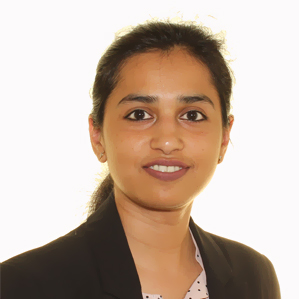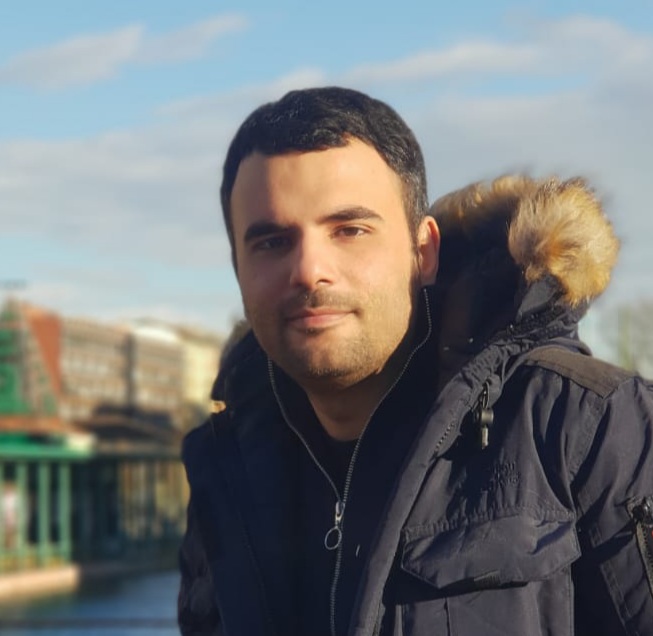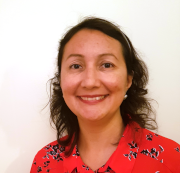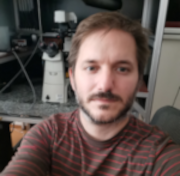PIs of Tomorrow
Finalists 2022
We are pleased to announce the finalists of the PIs of Tomorrow 2022:
- Adam Gosztolai (EPFL: "Wired to move: understanding motor control in the age of connectomics"
- Magali Humbert (University of Lausanne): "Lysosomes and Chemotherapy Resistance Mechanisms in Acute Myeloid Leukemia"
- Juan Carrillo (University of Fribourg): "Assessing the effect of the Miocene global warming in the evolution tropical mammals"
- Alicia Michael (Friedrich Miescher Institute for Biomedical Research): "How do transcription factors interpret and shape the eukaryotic genome?”
Congratulations and good luck at the final!!
Read below the research plans and statements of the finalists.
The chairs of the PIOT 2022 are: Shalu Jhanwar, Mehdi Badaouim, Amado Carreras and Paola Martinez Murillo, below you will find information of them.
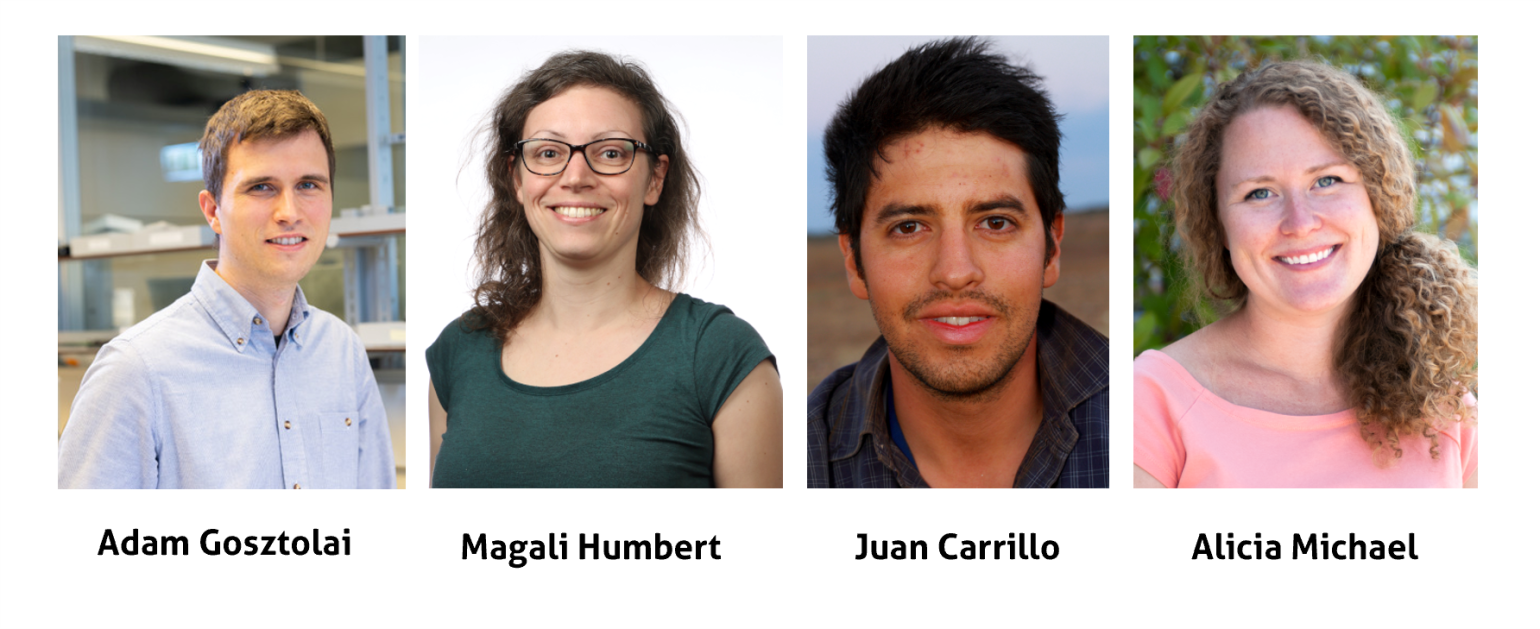
Our Jury for the 2022 Edition of PIOT
- Prof. Nicola Aceto (ETH Zurich)
- Ass. Prof. Alexis Jourdain (University of Lausanne)
- Dr. Stefanie Jonas (ETH Zurich)
- Ass. Prof. Miriam Stoeber (University of Geneva)
- Prof. Joshua Payne (ETH Zurich)
- Ass. Prof. Mackenzie Mathis (EPF Lausanne)
We are very happy to have such a great panel of jury. Thank you very much!
Adam Gosztolai
Wired to move: understanding motor control in the age of connectomics
Humans and animals can efficiently sense their environment and flexibly decide future movements even under uncertainty. Neuroscience and ethology have shown that these processes rely on distributed computations between populations of interconnected neurons. Likewise, works in bio-inspired robotics have designed artificial neural controllers, that, like neurons, use inter-connected computational units to replicate animal behaviours. Both fields have now mapped, in several species, particular instances of networks: synaptic-resolution anatomical connectomes, and optimised artificial network controllers. However, in both contexts, we lack general principles of network organisation relating to connectivity and functional parameters that establish movement-related activities. Methodology Emerging connectomics datasets and high-fidelity behavioural measurements in the fruit fly Drosophila melanogaster provide a unique opportunity to unveil the interplay between anatomical connectivity and the behavioural readout of network dynamics. To exploit this, I have developed (i) an experimental and computational approach to track the 3D kinematics of freely-behaving Drosophila (Gosztolai et al., Nature Methods,
2021) and (ii) a geometric theory to systematically link structure and dynamics of networks (Gosztolai et al., Nature Communications, 2021).
My group will develop a network theory of motor control by combining behaviour experiments, data-driven modelling and network theory of connectomic and artificial networks. We will focus on the following three aims:
- Aim 1 (year 1-3): What are the putative network computational units and dynamic timescales that combine to generate behaviour in a particular task environment?
- Aim 2 (year 2-4): How are these computational units organised to enable robust function but rapid shifts in response to sensory and descending inputs?
- Aim 3 (year 3-5): Are control networks adaptable and what learning rules lead to networks with desired dynamical properties?
We will validate the discovered principles through optogenetic stimulation and functional imaging, and collaborate with other labs to extend them in animals beyond Drosophila.
Significance and impact: The proposed research combines two powerful paradigms: networks (connectomic and artificial) and data-driven (equation-free) modelling of 3D kinematics. This approach will challenge traditional viewpoints, including (i) top-down viewpoints seeking single neural pathways of behaviour (i) bottom-up modelling approaches that tune equation parameters to obtain network dynamics. Being at the interface of biological and artificial movement control, the research will potentially impact the design of controllers for robotics and neuroprosthetics and the treatment of movement disorders.
Magali Humbert
Lysosomes and Chemotherapy Resistance Mechanisms in Acute Myeloid Leukemia
Acute myeloid leukemia (AML) patients have a 5-year overall survival of only 30%. Furthermore, most AML therapies, such as Anthracyclines in combination with Cytarabine (AraC), do not permanently eradicate the disease and most of patients will experience a relapse or have a refractory AML. Therefore understanding the biology of AML cells and resistant cells is an upmost priority to improve current chemotherapy and second line therapy possibilities. Even though central role of lysosomes is to act as a recycling centre of cells, there is mounting evidence that indicates that alteration in function of lysosomes contributes to chemotherapy resistance. Our collaborators and we previously described that the master regulator of lysosomal biogenesis, the transcription factor TFEB, is crucial for the activation of the granulocytic differentiation in AML blasts. Furthermore, our preliminary data indicated that lysosomal content of our AML cell line panel correlates with sensitivity to AraC treatment. The overarching goal of this project is to define the importance of lysosomes and lysosomal integrity in AML biology, therapy response and in resistance mechanism.
In this project I have three independent but related specific aims:
- Aim 1: Comparing lysosomal biogenesis and integrity in AML cells and resistant cells;
- Aim 2: studying the impact of stroma cells on lysosomal biogenesis of AML cells;
- Aim 3. Targeting the lysosomal degradation pathway to improve current AML therapy. To explore these aims, I will take advantage of AML resistant (AML-R) cells, 3D co-culture assay, flow cytometry and microscopy based techniques to study lysosome integrity and biogenesis. In addition, I will explore the lysosomal content using SILAC based mass spectrometry and what stroma cells and AML cells exchanged. Furthermore, I will dive deeper in the molecular mechanism that governs TFEB activity and its importance in therapy response using TFEB mutants and knock down cell. With the collaboration with pathologist, we will correlate lysosomal content in bone marrow biopsies of AML patient at diagnosis and during the follow up and compare it to healthy patients.
Significance: AML therapy strategies are mainly design to reduce the tumor cell bulk by the use of DNA damage agent such as Anthracyclines in combination with AraC. Development of drugs targeting a specific pathway opened new promised treatment option. Unfortunately, resistance to individual inhibitors limited their effectiveness. This project will improve our knowledge on lysosome biogenesis in AML and in resistant cells. Furthermore, by working directly with pathologists, we will develop immunohistochemistry marker and based on retrospective study, on our in-vitro and in-vivo data, we will be able to define new therapy strategy and management for AML patients. I therefore believe that the project will have different impacts on diagnosis and targeted therapy.
Juan Carrillo
Assessing the effect of the Miocene global warming in the evolution tropical mammals
The study of past climates provides the only opportunity to test with empirical data how the earth system has responded to high concentrations of carbon dioxide. In particular, the Miocene (23 – 5.3 million years [ma]) represents a time period when biota and paleogeography were similar to today, but extreme climatic changes ocurred. The Miocene climatic optimum (MCO) is a global warming event that occurred between 17-14 ma and was followed by a short period of cooling known as the Miocene climatic transition (MCT). The MCO has been suggested as an analogue for future climate scenarios. In the ongoing climate change, temperature is increasing more rapidly at high latitudes than in the tropics. However, it is unclear whether tropical regions were more resilient to climate change in the past. While paleotemperature estimates are available from high latitudes, the effect of the MCO and the subsequent MCT in the tropics remains unknown.
In this project, I aim to evaluate the magnitude of climate change at tropical latitudes during MCO and MCT. Tissues of organisms, such as teeth biominerals, record the chemical signal of the environment in which the organism lived. This signal is retained even after fossilization and the stable isotopes of oxygen from the enamel of fossil teeth are commonly used to study past climates. The ratio of oxygen isotopes record information about the temperature and rainfall of the environment in which the animal lived. With a team of international collaborators, I am developing a research program to study the Miocene Neotropical fauna. During my PhD and postdoctoral projects, we have collected new paleontological and geological data and contributed to fill the gap in the tropical fossil record. As result, there are hundreds of fossil mammal teeth available to sample for isotopic analyses. The stratigraphic occurrence of the fossil teeth spans the MCO and MCT and will allow us to provide accurate and precise temperature and rainfall estimates for the Neotropics during these events.
Paleoclimatic estimates from the tropics are greatly needed to incorporate paleoclimate data into climatic model evaluations. The MCO is a well-identified global warming event. However, it is unknown how much warmer was the temperature in the tropics during this event. This research will provide accurate temperature and rainfall estimates from the tropics during the peak of the MCO and the subsequent cooling during the MCT.
Alicia Michael
How do transcription factors interpret and shape the eukaryotic genome?
Specific regulation of genes is essential for cellular life, and misregulation is characteristic of human disease. Transcription factors (TFs) play a critical role in maintaining homeostasis, as they distinctly mark regions of the genome for expression and are the pillars of cell identity. Yet, even at the basic level of DNA recognition by TFs, we know very little of how this is achieved. In eukaryotes, all DNA-templated processes occur in chromatin; however, most studies elucidating the molecular mechanisms of transcription have been performed on histone-free DNA.
My future research program will use TFs as centerpieces to examine the molecular details of transcriptional regulatory complexes within chromatin to understand how the interplay between TFs and chromatin shapes the eukaryotic genome to control gene expression. Specifically, biochemistry paired with next-generation sequencing and cryogenic electron microscopy (cryoEM) will be applied to investigate how histone identity affects TF-DNA engagements and how TFs influence the spatial organization of genes. Notably, the DNA sequence-specificity of TF-centric assemblies will be leveraged to localize and determine the structure of dynamic chromatin-bound complexes in cells using engineered reporter systems. As a whole, my future research will apply structural and cell biology techniques to investigate long-standing mechanistic questions of genome regulation both in healthy tissues and disease.
Where are the past winners now?
-
- Lucia Prieto-Godino: 2017 Jury & Public Award Winner
Awarded FENS EJN Young Investigator Prize, L’Oreal-UNESCO for women in science Fellowship
Now Group Leader at the Francis Crick Institute (London, UK) - Alexander Harms: 2018 Jury Award Winner
Awarded SNSF Ambizione
Now Project Leader at Biozentrum University of Basel (CH) - Andreas Moor: 2018 Public Award Winner
Awarded SNSF Eccellenza, ERC Starting Grants
Now Professor at University of Zurich (CH) - Michael Zimmermann: 2019 Public Award Winner
Awarded SNF Advanced Postdoc.Mobility Fellowship, SwissTB Award, EMBO Long-Term Fellowship, SNF Early Postdoc.Mobility Fellowship Now Now Group Leader at EMBL (DE) - Francesca Ronchi: 2019 Jury Award co-Winner
Awarded SNSF-MHV Postdoctoral fellowship, ECCO Grant
Now Senior Scientist and Lecturer at University of Bern (CH) - Jean-Philippe Krieger: 2019 Jury Award co-Winner
Awarded an SNF postdoctoral fellowship
Now Postdoctoral Researcher at University of Gothenburg (Sweden)
- Thomas O. Auer: 2020 Jury Award Winner
Awarded an Ambizione Fellowship
Group Leader ( SNFS Ambizione) at University of Lausanne (CH) - Joachim Moser von Filseck: 2020 Public Award Winner
Now Postdoctoral Researcher at the University of Geneva (CH) - Elisa Araldi: 2021 Jury Award Winner
Now Postdoctoral Researcher at the ETH Zurich (CH), department of Health Sciences and Technology - Karina Silina: 2021 Public Award Winner
Now Researcher at the Institute for Experimental Immunology, University of Zurich (CH)
- Lucia Prieto-Godino: 2017 Jury & Public Award Winner
The Chairs of PIOT 2022
Dr. Shalu Jhanwar. Senior postdoctoral associate at the University of Basel
Shalu Jhanwar studied Bioinformatics at Banasthali University and at Jawaharlal Nehru University in India to obtain her MSc degree. She was awarded the gold medal for her outstanding performance throughout the studies. Thereafter, extensive research experience pursued in multiple labs sparked her interest in epigenetics and cancer. In 2012, she joined a Ph.D. program in computational biology at The Centre for Genomic Regulation (CRG), Barcelona upon receiving the prestigious la Caixa international fellowship. During her Ph.D., she worked on epigenetics of neurodegenerative disorders and cancer genomics. Presently, she works as a computational scientist investigating the role of epigenomics during development and evolution at the University of Basel. Apart from pursuing her research interests, she is actively involved in the academic review process, organization, and science outreach. She is on the reviewer panel for peer-reviewed journals and is appointed as an academic editor at PeerJ. She is an active member of the organizing committee of major life science events including PIs of tomorrow: The Future of Swiss Research session of Life Sciences Switzerland (LS2) and Basel Postdoc Network Meeting. Besides, she enjoys working on multiple projects simultaneously and is quite keen to transform research outcomes into innovations. When not in the lab, you can find her dancing, writing, reading, and solving puzzles.
Preferred way to be contacted: shalu . Jhanwar @ unibas . ch
Dr. Mehdi Badaoui, postdoctoral fellow at the University of Geneva.
Mehdi Badaoui obtained his MSc Degree in Molecular Interactions and Therapeutics from Jules Verne University of Amiens (France). In 2013, he started his Ph.D. working on the impact of tumor microenvironment on Breast Cancer progression, through the regulation of ion channels expression and activity. During his PhD, he developed strong skills on electrophysiology and cellular biology, supported by rewarding collaborations with the University of Reims (France) and Max Planck Institute for Experimental Medicine (Germany). Subsequently, he spent a year as a research and teaching assistant at the University of Amiens where he improved his communication and teaching skills. In 2018, he started a postdoc position at the University of Geneva under the supervision of Prof. Marc Chanson, focusing on the airway epithelium remodeling in Cystic Fibrosis and its predisposition to chronic infections by opportunistic pathogens. His scientific contribution was valued by winning the best poster presentation award at the ECFS Basic Science Conference 2018 and the Young Investigator Award for his oral presentation at the Swiss Physiology Meeting of Life Sciences Switzerland 2019.
Dr. Amado Carreras Sureda. Junior lecturer at the University of Geneva.
Amado obtained his Biology and Master degree at the Univeristy Pompeu Fabra (UPF) in Barcelona. In 2010, he joined the Ph.D. program in the department of Department of Experimental and Health Sciences also in the UPF in Barcelona. He did his Ph.D. at the Molecular Physiology and Channelopathies group leaded by Miguel Angel Valverde and worked on T cell activation and intracellular calcium homeostasis. After, he did a postdoc in the lab of prof. Claudio Hetz, granted by the FONDECYT program where he studied protein folding and ER stress coupled to mitochondrial biology, focusing on ER and mitochondria contact sites. During these periods he was able to work in the NYU, or KU Leuven, profiting from career awards like EMBO short term fellowship or the Boehringer Ingelheim travel grant. He came back to Europe on 2019, where he currently works as a Junior lecturer in the University of Geneva in the laboratory of Prof. Nicolas Demuarex. He intends to dedicate his scientific career to the study of ER proteostasis, interorganellar ionic and metabolic communication and how this impacts cellular adaptation to stress environments.
Dr. Paola Andrea Martínez Murillo, postdoc fellow atthe University of Geneva
Born and raised in Bogotá-Colombia, she felt in love with research during her bachelor degree. During her master thesis in 2006, she worked with malaria vaccines in murine models. Live would change when an opportunity to do an internship in Karolinska brought her to Stockholm in 2011. In 2012 she started a PhD at the Karolinska Institutet under the supervision of Prof. Gunilla Karlsson Hedestam. Her graduate studies focused on adaptive immune system by measuring B cell responses and antibodies at the molecular level induced after vaccination of Non-Human Primates (NHP) with a soluble Env HIV trimer. In 2018, she started a postdoc in vaccinology in Prof. Claire-Anne Siegrist group at the University of Geneva. In the course of her post-doctoral training, she has expanded her knowledge into innate immunity by refining a plasma signature of markers induced after Ebola vaccination in human volunteers and define in vitro the main cells involved in those markers production. In addition, as soon as the COVID-19 pandemic developed, she had the opportunity to display her adaptive and innate knowledge to investigate the immune response triggered by SARS-CoV-2 in adults and children suffering from mild COVID-19. Her scientific career is focused in evaluate the translational immune response of infectious agents and vaccines.
In her free time she loves to be part of projects that involves education, innovation and sharing knowledge with public as science clubs for teenagers, SciFilmIt, Colombian Association of Researchers in Switzerland (ACIS). She believes that science can transform lives for the good.
